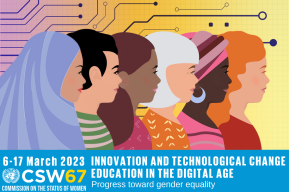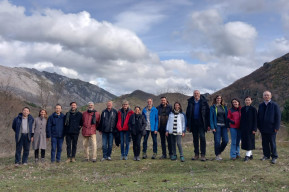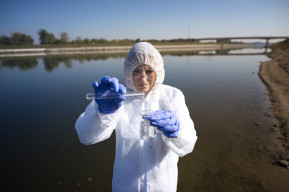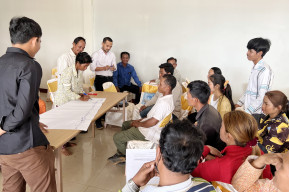News
Connecting the water agenda to the climate agenda: the Intergovernmental Hydrological Programme’s contribution to COP 27
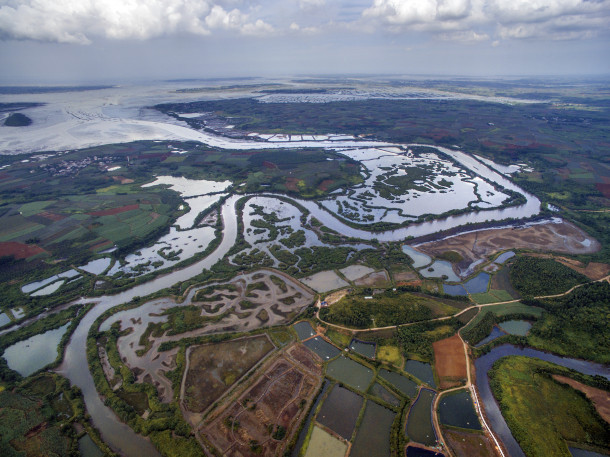
Water in today’s climate
Among the victims of devastating disasters this year, 97% were affected by climate-related events, flooding being the most common. Climate change has been felt around the world this year largely through water: either too much or too little of it.
Across Europe, parts of Asia, the Americas, Africa and Australia, record-breaking droughts have created huge water shortages. This has, in turn, affected food and energy production, sanitation and the economy. The United Nations Office for the Coordination of Humanitarian Affairs estimates that at least 36.1 million people were affected by severe drought in the Horn of Africa in October 2022.
Other parts of the world have experienced extensive flooding, as in Pakistan. The United Nations Children’s Fund (UNICEF) has described the flooding in Pakistan as being the most severe in the country’s recent history. Flooding has left 10 million children in need of immediate, lifesaving support and at a heightened risk of waterborne diseases, drowning and malnutrition.
Climate change is also accelerating glacier melt, threatening freshwater supplies and augmenting the risk of natural hazards. In a recently released report, UNESCO has warned that, unless global temperature rise is kept below 1.5°C relative to pre-industrial levels, all of the planet’s glaciers may melt. Were this to happen, half of humanity would face water shortages.
It is against the backdrop of these current hydro-climatic challenges that UNESCO’s Intergovernmental Hydrological Programme (IHP) is taking part in the United Nations Conference on Climate Change (COP27) in Egypt, bearing a message to the world.
“Water is the connector. Linking mankind to all of nature, contributing to global growth and climate action. It is time to move from planning to action. This has to include:
- How to finance and scale up tools,
- The importance of early warning systems,
- The emergence and important role of citizen science
- The use of indigenous knowledge to complement “hard” science,
Using all these (above) to adapt to a climate that is increasingly unpredictable”.
This message is being shared via several events organized by IHP at the UNESCO and Water Pavilions at the COP 27in Egypt, from 9 to 16 November.
Joining forces: the "Water for Climate" Pavilion
UNESCO-IHP partnering with several other global water organizations and institutions to raise the visibility of water issues and solutions and ensure that key messages reach a wide audience in the Water Pavilion. This is the second time that a Water Pavilion is organized at a Climate COP - the first was in 2021 during the 26th edition of the UN Climate Change conference, where it had helped to shine a light on the role of water as a connector, a channel through which climate change impact is felt, and a tool that has a role to play in climate change adaptation and mitigation.
“We need to connect the water agenda with the agenda on climate change” explained Anil Mishra, Chief of the Hydrological Systems, Climate Change and Adaptation Section, UNESCO.
At the Water Pavilion, UNESCO-IHP is launching online courses and manuals on Climate Risk-based Decision Analysis (CRIDA) for the African and Arab regions.
UNESCO Pavilion: providing a multidimentional outlook of climate change adaptation
UNESCO is not only presenting the role of water in climate action, but also showcasing a holistic approach to tackle climate change through its expertise combining science, education, culture, and communication and information.

Over 40 events are hosted at the UNESCO Pavilion, showcasing the role of culture, education, science, and designated sites such as biosphere reserves in climate change adaption, and bringing together its partners and civil society to share experiences of successful climate action.
The role of groundwater
Several events are demonstrating the place of groundwater in climate action, and how it contributes to sustainable development, at the UNESCO Pavilion, including a dedicated event on groundwater as a resource for climate adaptation, and another on groundwater based solutions for water security in a changing climate. Both events will also be announcing the upcoming Groundwater Summit which will take place at UNESCO headquarters in Paris, France, from 6 to 8 December 2022. The key resolutions from the summit will be transmitted to global leaders who will be present at the UN Water Conference in New York in March 2023.





